1. What is your first memory of discovering fantasy or horror literature?
My very earliest memory is of a sequence of horror anthologies I got into during my early teens. I'm not even sure who the series was published by – it wasn't Pan Books, I don't think . . . Panther, maybe? – but I do recall sitting in bed at night, reading some of the stories and getting a visceral and intellectual thrill I really hadn't encountered in anything I'd read before.
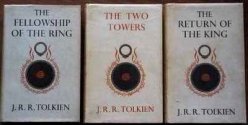 There was one tale in particular (about a painting of a woman who'd got injured in a riding accident) whose spookiness and dreadful inevitability I can still savor, though it's been a quarter of a century and I've never re-read it since. No idea who wrote it, or even what it was called. I worked my way through THE LORD OF THE RINGS at around that age too, inspired by enjoying THE HOBBIT when our teacher read it to us in class, and that was about it. Then I seemed to lose interest in horror and the fantastical for a long while, and got into science fiction and literary stuff instead – though I did start to really enjoy contemporary horror movies.
There was one tale in particular (about a painting of a woman who'd got injured in a riding accident) whose spookiness and dreadful inevitability I can still savor, though it's been a quarter of a century and I've never re-read it since. No idea who wrote it, or even what it was called. I worked my way through THE LORD OF THE RINGS at around that age too, inspired by enjoying THE HOBBIT when our teacher read it to us in class, and that was about it. Then I seemed to lose interest in horror and the fantastical for a long while, and got into science fiction and literary stuff instead – though I did start to really enjoy contemporary horror movies.
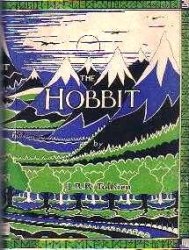 The swerve into horror prose came very abruptly after reading THE TALISMAN, by Stephen King and Peter Straub, when I was about twenty-two. A friend of mine made me read the novel, and I did so under protest (it was a quid pro quo for him reading LUCKY JIM), but it was like it flicked a switch in my head. I immediately read everything I could get my hands on by King – and he'd just been outed as Richard Bachman, so there was a lot – and my life changed right there and then. Life is full of fudged decisions and "maybe" moments. Deciding I wanted to get into writing horror stories was like falling off the world's slipperiest log.
The swerve into horror prose came very abruptly after reading THE TALISMAN, by Stephen King and Peter Straub, when I was about twenty-two. A friend of mine made me read the novel, and I did so under protest (it was a quid pro quo for him reading LUCKY JIM), but it was like it flicked a switch in my head. I immediately read everything I could get my hands on by King – and he'd just been outed as Richard Bachman, so there was a lot – and my life changed right there and then. Life is full of fudged decisions and "maybe" moments. Deciding I wanted to get into writing horror stories was like falling off the world's slipperiest log.
2. What made you want to become a writer?
I suppose I always knew that writing was "possible", because my father is a professor and had produced a lot of academic work. So I understood that you could go into a room, spend a lot of time facing a typewriter, and have something tangible come out the other end. I wrote a couple of short and derivative pieces in my early teens, so there was obviously some kind of early interest in recreating the experience of reading, then forgot about the idea.
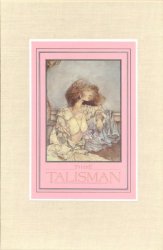 I went to university expecting to become an academic, but was slightly derailed by spending too much time doing comedy with the Cambridge Footlights. I did actually get a place to do a Ph.D (on the social significance of the horror movie, which perhaps suggests I was already being dragged toward the genre by forces outside my control). I needed a First to get the grant but in the end I only got a 2:1. It was while I was on a three-month theatre tour after graduating, and wondering what I was going to do with my life, that I read THE TALISMAN.
I went to university expecting to become an academic, but was slightly derailed by spending too much time doing comedy with the Cambridge Footlights. I did actually get a place to do a Ph.D (on the social significance of the horror movie, which perhaps suggests I was already being dragged toward the genre by forces outside my control). I needed a First to get the grant but in the end I only got a 2:1. It was while I was on a three-month theatre tour after graduating, and wondering what I was going to do with my life, that I read THE TALISMAN.
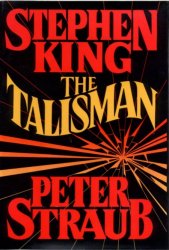 From that point on it felt more like writing had chosen me. I started writing my first short story – 'The Man Who Drew Cats' – while still on the tour, and after that grabbed a job mainly to support myself while I learned how to get the things in my head out and onto the page. Once I'd started writing, that was it – I knew this was what I wanted to do. It was like I'd moved to a country that I knew would be my home for life, even if there were going to be difficult days, or months, or years.
From that point on it felt more like writing had chosen me. I started writing my first short story – 'The Man Who Drew Cats' – while still on the tour, and after that grabbed a job mainly to support myself while I learned how to get the things in my head out and onto the page. Once I'd started writing, that was it – I knew this was what I wanted to do. It was like I'd moved to a country that I knew would be my home for life, even if there were going to be difficult days, or months, or years.
It's not like I want to do it every day, you understand – I have huge inner reserves of laziness – more that there's just nothing else I want to do at all.
3. Who are your major influences and why?
They probably split into three types. First, chronologically, were the people who initially caught my attention and made me realize either that there were interesting and unusual kinds of stories to tell, or how important choice of language was in the telling of them.
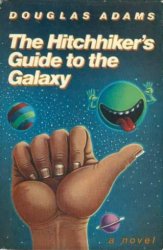 Amongst these I'd count Ray Bradbury and Kingsley Amis, foremost – but should probably add Isaac Asimov and Arthur C. Clarke, who I read pretty avidly for awhile. And Enid Blyton probably deserves a nod, too: her ". . . of Adventure" series was pretty damned good, unusually dark and compelling for kids' books, and I can remember re-reading them many times. It's easy to underestimate the narrative quality of some of her work, and how it helped shape a generation of story-telling. I read an awful lot of Raymond Chandler and P.G. Wodehouse as a kid, so maybe they were important too. And I guess you'd need to include the radio series of THE HITCHHIKER'S GUIDE TO THE GALAXY as well. I believe I read at least a couple of things by Philip K. Dick back then, too – though I only really got into him after I'd started writing SF myself.
Amongst these I'd count Ray Bradbury and Kingsley Amis, foremost – but should probably add Isaac Asimov and Arthur C. Clarke, who I read pretty avidly for awhile. And Enid Blyton probably deserves a nod, too: her ". . . of Adventure" series was pretty damned good, unusually dark and compelling for kids' books, and I can remember re-reading them many times. It's easy to underestimate the narrative quality of some of her work, and how it helped shape a generation of story-telling. I read an awful lot of Raymond Chandler and P.G. Wodehouse as a kid, so maybe they were important too. And I guess you'd need to include the radio series of THE HITCHHIKER'S GUIDE TO THE GALAXY as well. I believe I read at least a couple of things by Philip K. Dick back then, too – though I only really got into him after I'd started writing SF myself.
Finally came the big one, the man who actually made me want to set pen to paper in the first place – Stephen King. He took me firmly into horror prose for the first time, where I soon discovered Ramsey Campbell and H.P. Lovecraft and Clive Barker.
I was completely immersed in horror for a number of years, and then I started reading more noir stuff – Jim Thompson, James Lee Burke and James Ellroy. The difference between this and horror (and some kinds of science fiction) has never seemed that important to me. It's all about death and love and happiness and sadness, the things that really make us tick. There are a few more "literary" writers who I like too, but none of them really seem to hit the nail on the head like the genre guys. There's a hell-for-leather quality about genre fiction that seems to much more closely mirror real life.
4. How difficult was it for you to first get published?
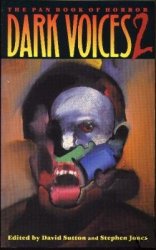 I started to write short stories without any clue of how to get them published. The idea of seeing them in print wasn't even that important to me, at the start. I eventually sent a few to a fairly random assortment of magazines, mainly in the U.S., and most of which I never heard from again.
I started to write short stories without any clue of how to get them published. The idea of seeing them in print wasn't even that important to me, at the start. I eventually sent a few to a fairly random assortment of magazines, mainly in the U.S., and most of which I never heard from again.
Then I turned up at a boring office to do some temp work, and met the [English novelist] Nicholas Royle. We quickly became friends and discovered we'd been writing quite similar stories. Nick was far more experienced than me, and had already been published several times – and he definitely counts as an early influence too: he's written some of the best modern horror short stories I've ever read. It was he who suggested that I send something to THE PAN BOOK OF HORROR, and that eventually turned into my first published story – 'The Man Who Drew Cats' – in DARK VOICES 2. Technically, I think Nick took 'The Dark Land' for his own upcoming anthology (DARKLANDS) first, though it was actually printed afterwards. After that I began to have a couple more stories accepted here and there. It was a slow start, but it usually is, and it's better that way. You want to make sure you have at least a tiny idea of what you're doing, I think, before you have any success.
5. What do awards mean to you?
I was lucky enough to win an award very early, actually for the first story I had published. This was a huge boost, naturally – and led
to a publisher being willing to look at my first novel when I finished it a couple of months later. So that award, and the ones that followed
over the new couple of years, was certainly very important. I've subsequently won a couple others that have meant a great deal,
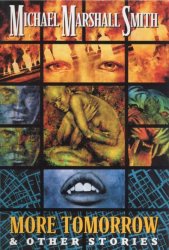 the Philip K. Dick Award for ONLY FORWARD and the International Horror Guild Award for my
collection MORE TOMORROW & OTHER STORIES, but otherwise they've sort of dried up.
the Philip K. Dick Award for ONLY FORWARD and the International Horror Guild Award for my
collection MORE TOMORROW & OTHER STORIES, but otherwise they've sort of dried up.
That's okay. Awards are great for spurring on new writers, and for recognizing genuine and long-term achievement. Too often they can boil down
to a clique handing out gongs to other members of the clique, however. I couldn't give a toss about ever winning the Booker, for example, not that
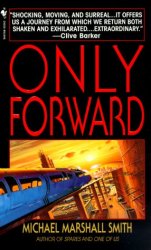 that's a very likely possibility . . .
that's a very likely possibility . . .
6. Do you find the process of writing difficult?
Depends how you define it. The process of writing itself – of getting words down on paper, when I know what I want to say and have some idea of where I'm going . . . no. I write very quickly under those circumstances. It just comes out. I don't find the conceptual stuff hard either, the ideas behind the ideas. What I find more difficult is buckling down to it in the first place, convincing myself that the plot notions I have are enough to manifest the ideas compellingly, and that it's time to settle down and do some actual bloody typing.
I find it difficult to concentrate at times, to get my mind to focus on one task at the exclusion of all others. I need to be there, to effectively be living within the realm of the book. The first third of a book is always pretty hard going for me. But once I'm over that hump and have moved myself mentally and emotionally into the land of that novel, it speeds up a great deal. Speed is good. Most of the best stories I've written were finished in a day. You don't want too much of your mind to get in the way of the story.
7. If you were not a writer, what would you like to be?
I have no idea! Writing and the pursuit of words have become so much a part of who I am that it's impossible to imagine a life without them. I wanted to be a musician once – I think that's probably true of quite a lot of writers – but the desire never really had enough motor driving it.
I guess if I had to choose then it would be something completely different – something more physical and with concrete tasks and completions, a job which you could walk away from at the end of the day without always having a little nagging voice in your head. A short-order cook in a small town, maybe.
8. What are your professional goals, or have you already achieved them?
Christ no! Though actually, I don't really have goals in the normal sense – it's not like I want to win some particular award, or sell a certain number of copies, or write a blockbuster movie: all of these type of achievements tend to be quite short-lived.
I'd like to find a kind of fiction which successfully marries the different stuff I enjoy reading and writing – noir, horror, a little humor, some strange and fantastical elements – while still be compelling to the average reader.
I've never made much of a distinction between the genres in my mind – they're all about a sense of wonder, of turning expectations on their head to dig into the structures of life and the mind. The real challenge would be finding someone to publish it in the first place, sadly. I suppose my real professional goal is to keep writing, to keep getting better (or at least not markedly worse) and to die having just typed the period at the end of a novel, knowing I had half an hour to have a shower and a cigarette before meeting some friends in the pub.
9. What advice would you give to any authors just starting out?
Write. Sounds facile, but that's what the job boils down to. So many people seem too worried about getting published, about networking, about having a website and something – anything – they can hand out to their friends. None of these are what the life or the art is really about.
You need to write because you either want to or feel you have no choice, and because that's what your life is about, and you just need to keep going at it.
On a practical level it helps to have some contemporaries, people who'll read your stuff and comment: or, better still, just say it's great –
because what the fledgling writer needs is not constructive criticism, but straightforward encouragement. Only when she or he is locked on course does it become really useful to run into an editor or two who can help them shape and refine what they're doing.
In the end it comes down to belief – and belief is often less a case of starry-eyed self-boosterism, and more a matter of just being very, very dogged. Work out who you like, consider why that might be, and then just switch the computer on and get going. That's what writing is.
Everything else is just the job.
10. How do you feel about being a Guest of Honor at the 2007 World Horror Convention in Toronto?
I'm utterly delighted. Amazed, really.
Though I've kept writing horror stories, my first three novels are generally thought of as science fiction, and the following three as kind of thrillers. In my own mind I've kept the faith with horror throughout, but I feared this might not be obvious from the outside.
To be a guest a horror convention of this stature is, at the risk of sounding corny, genuinely a dream come true. The callow youth who sloped into a hotel bar fifteen-odd years ago for his first British Fantasy Convention would be pretty fucking psyched about it, that's for damned sure.

